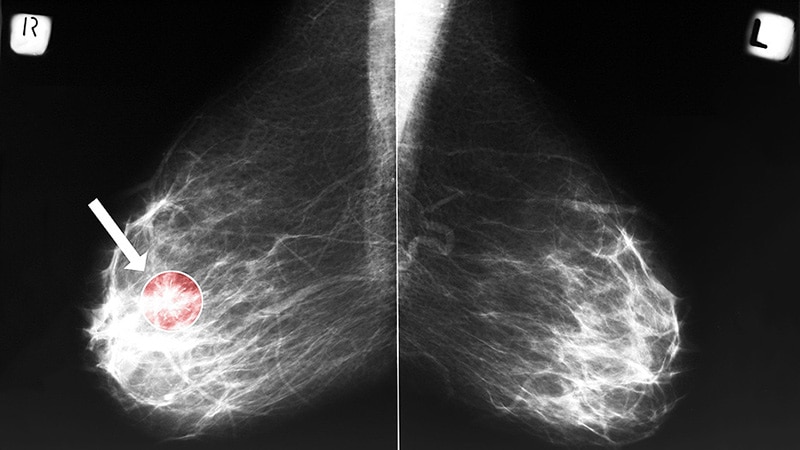The study covered in this summary was published as a preprint and has not yet been peer reviewed.
Key Takeaway
-
For breast cancers with low expression of hormone receptors (1%-10%), the survival benefit associated with adjuvant endocrine therapy is limited to patients who do not have adjuvant radiation.
Why This Matters
-
As a result of limited data, debate about the role of adjuvant endocrine therapy in breast cancers with low expression of hormone receptors continues.
-
These findings, which suggest that adjuvant endocrine therapy may be best when limited to low-expression patients who do not plan to have adjuvant radiotherapy, may help clarify the issue.
Study Design
-
Investigators compared disease free survival (DFS) and overall survival (OS) between 320 women who had endocrine therapy following surgery with 128 who did not.
-
Overall, 133 (42%) received tamoxifen, 155 (48%) received an aromatase inhibitor, and 32 (10%) had tamoxifen followed by an aromatase inhibitor.
Key Results
-
Tumors recurred in 84 women (19%), and 51 (11%) died during a median follow-up of 7.9 years.
-
Overall, DFS and OS for women who received and did not receive adjuvant endocrine therapy were not significantly different in a propensity score-weighted log-rank test and a Cox proportional regression analysis.
-
But women who received adjuvant endocrine therapy but not adjuvant radiation therapy did have a survival benefit (hazard ratio [HR], 0.5; P = .04 for DFS; HR, 0.4; P = .046 for OS).
Limitations
-
It was a retrospective study performed at a single institution.
-
Adherence to adjuvant endocrine therapy and duration of administration were not assessed.
-
Administration of endocrine therapy was assumed based on prescriptions in medical records.
Disclosures
-
Funding source and disclosures were not reported.
This is a summary of a preprint research study, “Survival Benefit of Adjuvant Endocrine Therapy for Hormone Receptor Low-Positive Breast Cancer: A Propensity Score-Weighted Analysis,” led by Han Suk Ryu of the Seoul National University College of Medicine, provided to you by Medscape. The study has not been peer reviewed. The full text can be found at researchsquare.com.
M. Alexander Otto is a physician assistant with a master’s degree in medical science and a journalism degree from Newhouse. He is an award-winning medical journalist who has worked for several major news outlets before joining Medscape and also an MIT Knight Science Journalism fellow. Email: [email protected].
For more news, follow Medscape on Facebook, Twitter, Instagram, YouTube, and LinkedIn
Source: Read Full Article






